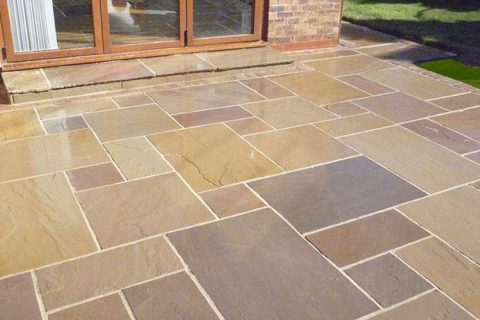Paving and pointing are crucial elements in the construction and maintenance of driveways, walkways, patios, and other outdoor surfaces. Whether you’re looking to create an attractive outdoor space or restore the charm of existing paved areas, understanding the techniques and materials involved in paving and pointing is essential. In this post, we will delve into the world of paving and pointing, exploring their importance, common materials used, and the benefits they offer to homeowners.
The Significance of Paving and Pointing
Paving refers to the process of laying hard surfaces like concrete, asphalt, or natural stones to create walkable and usable areas around residential and commercial properties. Pointing, on the other hand, involves filling the gaps or joints between these paving elements to provide stability, prevent weed growth, and enhance the overall appearance.
Aesthetics: Paving and pointing offer endless possibilities when it comes to creating visually appealing outdoor spaces. With various colors, textures, and patterns available, homeowners can design surfaces that complement their property’s architecture and landscaping.
Durability: Properly laid paving with appropriate pointing can withstand heavy foot traffic, vehicular loads, and harsh weather conditions. Well-maintained paved areas can last for decades, providing a durable surface for daily use.
Safety: Paving enhances safety by offering a level and stable surface for walking, cycling, or driving. In contrast, pointing ensures that the individual paving units are firmly held in place, minimizing the risk of tripping or stumbling.
Common Materials Used in Paving and Pointing
Concrete: Concrete is a versatile and cost-effective material used in various paving projects. It can be colored, stamped, or textured to mimic the appearance of natural stone, brick, or other materials.
Natural Stone: Natural stones like granite, limestone, sandstone, and slate are popular choices for high-end paving projects. Their unique colors and textures add character and elegance to outdoor spaces.
Bricks: Clay or concrete bricks offer a classic and timeless look to driveways and walkways. They are durable and come in various colors and patterns, allowing for creative designs.
Asphalt: Asphalt is commonly used for roadways and driveways due to its ability to withstand heavy loads and its smooth surface.
Mortar: Mortar, a mixture of cement, sand, and water, is commonly used for pointing to fill gaps between pavers or bricks. It provides stability and prevents weed growth between the individual units.
The Benefits of Professional Paving and Pointing
Expertise and Experience: Hiring a professional paving and pointing contractor ensures that the job is done right the first time. They have the necessary expertise and experience to choose the right materials, design attractive patterns, and execute the project efficiently.
Quality and Longevity: Professionals use high-quality materials and proper techniques to ensure the durability and longevity of your paved surfaces. This reduces the need for frequent repairs or replacements.
Time and Cost Savings: While a DIY approach might seem cost-effective initially, improper installation or pointing can lead to costly repairs down the line. Professional contractors can complete the project swiftly and accurately, saving you time and money in the long run.
Enhancing Property Value: A well-maintained and beautifully designed paved area adds to the curb appeal and overall value of your property, making it more appealing to potential buyers.
Maintenance Tips for Paved Surfaces
To prolong the life and beauty of your paved surfaces, consider the following maintenance tips:
Regular Cleaning: Sweep and wash your paved areas regularly to remove dirt, debris, and stains. Pressure washing can be used for tougher cleaning tasks.
Resealing: Depending on the material used, periodic resealing can help protect the surface from moisture and UV damage.
Weed Control: Monitor for weed growth between the pavers and promptly remove any unwanted vegetation.
Paving and pointing are essential aspects of creating attractive and durable outdoor surfaces. From enhancing the aesthetic appeal to providing safety and stability, well-executed paving projects can transform your property’s exterior. Whether you choose concrete, natural stone, or bricks, hiring professional contractors ensures that the work is done to the highest standard. Regular maintenance will further extend the life of your paved areas, allowing you to enjoy the beauty and functionality they bring for many years to come.


